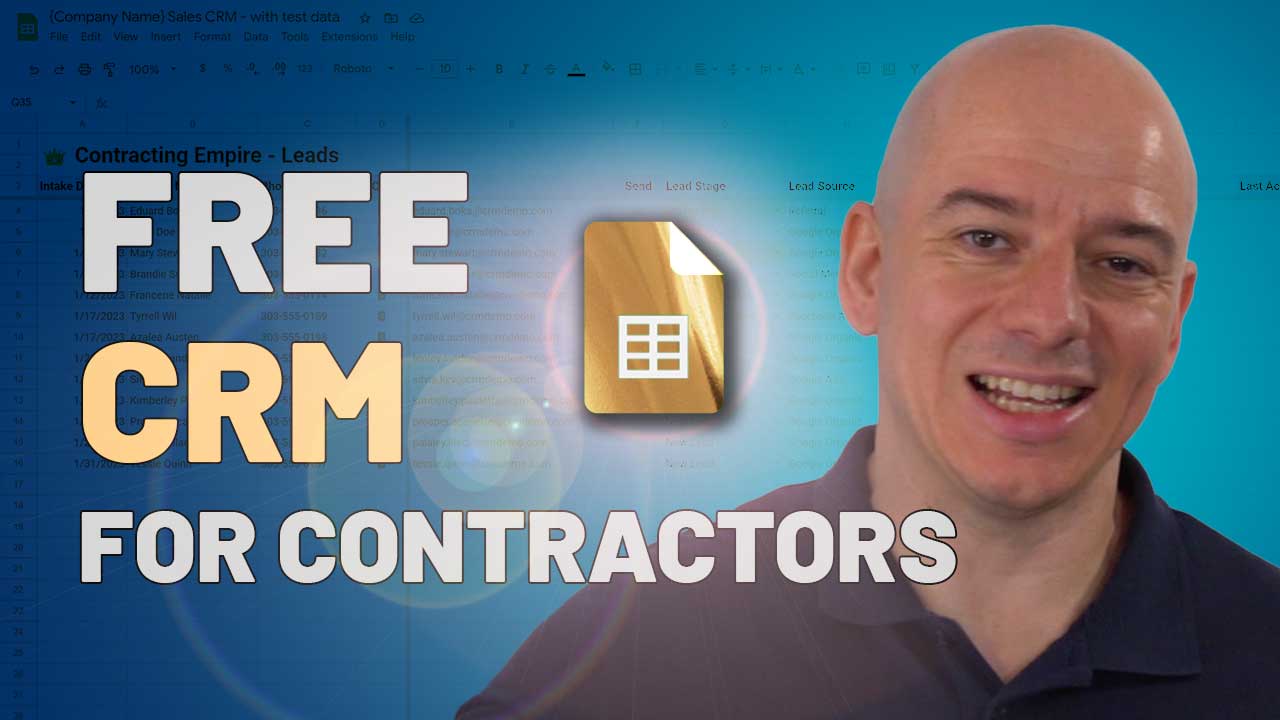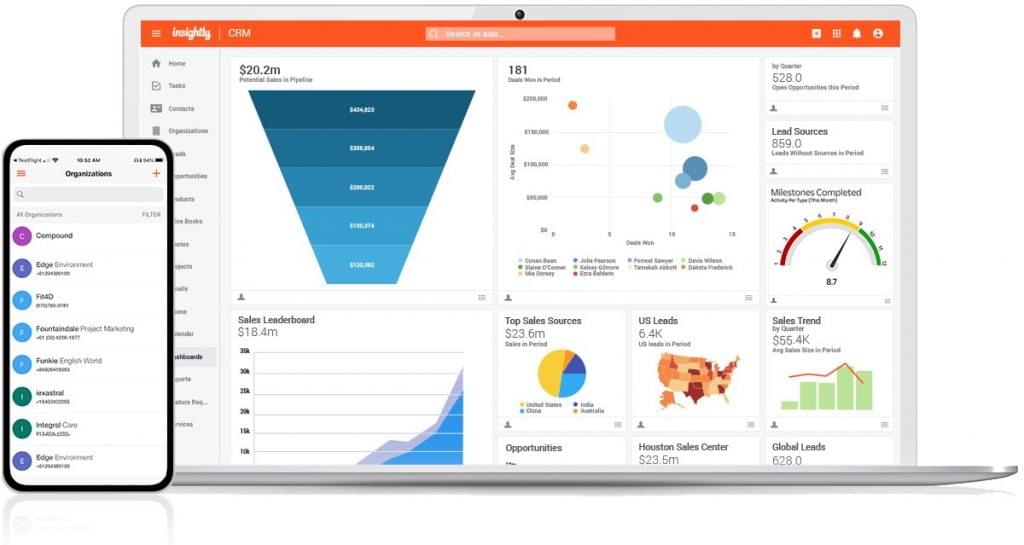In today’s competitive contracting landscape, CRM contractors play a pivotal role in helping businesses streamline their operations, enhance customer relationships, and drive growth. As a CRM contractor, you possess the expertise to implement and manage CRM systems, empowering contractors to leverage technology for success.
This comprehensive guide delves into the world of CRM contractors, exploring their types, selection criteria, implementation strategies, and best practices. Whether you’re a seasoned contractor or a business owner seeking to enhance your CRM capabilities, this guide provides valuable insights to navigate the complexities of CRM systems and maximize their potential.
Customer Relationship Management (CRM) Overview
Customer Relationship Management (CRM) systems are software solutions that assist businesses in managing and nurturing customer relationships. These systems provide a centralized platform for storing and organizing customer data, tracking interactions, and automating various aspects of customer management.
For contractors, CRM systems offer a range of benefits, including improved customer communication, streamlined lead management, enhanced project management, and increased efficiency in overall operations.
Key Components of a CRM System
CRM systems typically consist of several key components:
- Contact management:Stores and organizes customer contact information, including names, addresses, phone numbers, and email addresses.
- Lead management:Tracks and manages potential customers (leads) through the sales pipeline, from initial contact to conversion into paying clients.
- Sales management:Automates and streamlines the sales process, including tracking opportunities, managing quotes, and closing deals.
- Marketing automation:Automates marketing campaigns, such as email marketing, social media marketing, and lead nurturing.
- Customer service:Provides a centralized platform for managing customer support requests, tracking interactions, and resolving issues.
Types of CRM Contractors
CRM contractors provide specialized services to help businesses implement, customize, and manage their CRM systems. Different types of CRM contractors offer a range of services tailored to specific needs.
The main types of CRM contractors include:
Implementation Contractors
- Provide expertise in implementing CRM systems from scratch or migrating from existing systems.
- Configure and customize the CRM system to meet specific business requirements.
- Train users on how to use the system effectively.
Customization Contractors
- Specialize in modifying and enhancing existing CRM systems to fit unique business processes.
- Develop custom integrations with other business applications.
- Create custom reports and dashboards to provide insights into customer data.
Management Contractors
- Provide ongoing support and maintenance for CRM systems.
- Monitor system performance and troubleshoot any issues.
- Provide training and updates to users as needed.
Advisory Contractors
- Offer strategic guidance on CRM implementation and optimization.
- Assess current CRM systems and make recommendations for improvements.
- Develop CRM roadmaps and provide best practices.
Training Contractors
- Provide training to users on how to use CRM systems effectively.
- Develop training materials and conduct workshops.
- Provide ongoing support and resources to users.
Selecting a CRM Contractor

Selecting a qualified and experienced CRM contractor is crucial for a successful CRM implementation. Here are some tips to guide you through the evaluation and selection process:
Industry Experience and References:
Consider the contractor’s expertise in your specific industry. A contractor with experience in your field will have a deeper understanding of your business processes and challenges. Additionally, request references from previous clients to gain insights into the contractor’s performance and client satisfaction levels.
Implementing a CRM System

Implementing a CRM system is a crucial process for contractors to streamline their customer interactions and improve their overall business operations. The implementation process typically involves several key steps and requires careful planning and execution to ensure a successful outcome.
One of the initial steps in implementing a CRM system is to define the specific business goals and objectives that the system should help achieve. This involves identifying the key areas where the CRM system can improve processes, such as lead management, customer service, or project management.
Clearly defining the goals and objectives will provide a clear roadmap for the implementation process.
Challenges during CRM Implementation, Crm contractor
Contractors may encounter various challenges during the implementation of a CRM system. These challenges can range from technical difficulties to resistance from employees. Some common challenges include:
- Data migration:Transferring existing customer data from legacy systems or spreadsheets into the new CRM system can be a complex and time-consuming process. Ensuring data accuracy and completeness during migration is crucial to avoid data loss or inconsistencies.
- Employee adoption:Getting employees to embrace and use the new CRM system can be challenging. Resistance to change, lack of training, or inadequate user support can hinder the successful adoption of the system.
- Integration with other systems:Integrating the CRM system with other software applications, such as accounting or project management systems, can be a complex task. Ensuring seamless data flow and avoiding data duplication or inconsistencies is essential for effective system integration.
- Customization:Tailoring the CRM system to meet the specific needs of a contracting business can be a complex and ongoing process. Balancing customization with the need for system stability and ease of use is crucial to avoid over-complicating the system.
Using a CRM System for Contractor Success
Contractors can use a CRM system to improve their operations in many ways. For example, a CRM system can help contractors:
- Manage customer relationships
- Track leads and sales
- Automate marketing and sales processes
- Provide customer support
- Generate reports and analytics
By using a CRM system, contractors can improve their efficiency, productivity, and profitability.
Case Studies
There are many case studies of contractors who have successfully implemented CRM systems. For example, one contractor increased its sales by 20% after implementing a CRM system. Another contractor reduced its customer churn rate by 15% after implementing a CRM system.
These case studies show that CRM systems can be a valuable tool for contractors. By using a CRM system, contractors can improve their operations and achieve greater success.
Best Practices for CRM Usage

Effective utilization of a CRM system can significantly enhance contractor operations. By adhering to best practices, contractors can maximize the value of their CRM system and achieve optimal outcomes.
A key best practice is maintaining data accuracy and consistency. Regularly updating customer information, project details, and other relevant data ensures the system remains a reliable source of truth. Additionally, establishing clear data entry protocols and utilizing data validation tools can minimize errors and maintain data integrity.
CRM System Customization
Customizing the CRM system to align with specific business processes and workflows is crucial. This involves tailoring the system’s functionality, fields, and dashboards to meet the unique needs of the contracting business. By doing so, contractors can streamline operations, improve efficiency, and enhance user adoption.
Regular System Reviews and Updates
Regularly reviewing the CRM system’s performance and identifying areas for improvement is essential. This includes monitoring key metrics, such as user adoption, data accuracy, and system efficiency. Based on these reviews, contractors can make informed decisions regarding system updates, enhancements, or integrations with other software applications to optimize its functionality.
Training and User Adoption
Investing in comprehensive training programs for users is vital to ensure effective CRM system adoption. Training should cover all aspects of the system, from basic navigation to advanced functionality. By providing ongoing support and resources, contractors can empower users to fully utilize the CRM system’s capabilities and drive business success.
Data Security and Compliance
Maintaining robust data security measures is paramount to protect sensitive customer and project information. Implementing strong passwords, access controls, and regular backups ensures data confidentiality and compliance with industry regulations. Additionally, establishing clear data retention policies and procedures minimizes the risk of data breaches and ensures compliance with data protection laws.
Final Thoughts

CRM contractors serve as invaluable partners for contractors, providing the knowledge and expertise to harness the power of CRM systems. By leveraging the insights and strategies Artikeld in this guide, contractors can effectively select, implement, and utilize CRM systems to streamline their operations, strengthen customer relationships, and achieve long-term success.